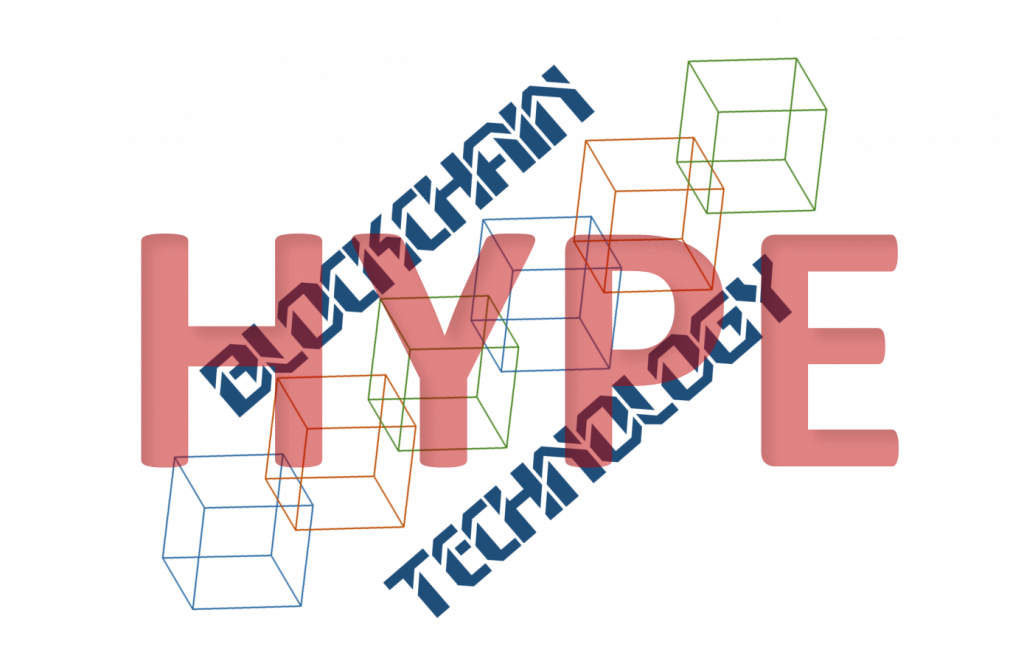Many articles about blockchain technology in the supply chain contain the word “potential.” For example, attorneys Kathleen E. Wegrzyn and Eugenia Wang write, “While blockchain technology can potentially provide huge advantages to supply chains, there are also potential disadvantages that make it clear that any blockchain solution must be well-tailored to the targeted supply chain.”[1] Tech writer Jeannie Kever (@JEKever) adds, “Blockchain technology has the potential to transform the global supply chain and improve both the speed and security of handling the flow of goods at international borders. But researchers say big questions remain about how the transformation will unfold.”[2] And logistics journalist Josh Fisher (@TrucksAtWork) asks, “Have the sinking cryptocurrency markets, which run on blockchain, stymied the buzz around how the technology could revolutionize supply chains?”[3] In other words, will the hype surrounding blockchain technology ever pay-off in supply chain operations?
Blockchain’s Potential
Venkateswarlu Nandimandalam, an Executive Vice President at Terralogic, believes that blockchain’s hype will eventually turn into reality because the complexity of supply chain operations demands a technology like blockchain. He explains, “When we talk about the supply chain, we think about the complex management that all the links and hub points plus distributing are a complicated seamless process to achieve. This process spans hundreds of steps, over vast geo locations, both local and across borders, not to forget the pile of physical payment receipts and paper works, documents, plus the numerous units. Today’s supply chain industry involves a lot more complexity and lacks transparency. Due to this, there are lofty hopes [that] Blockchain [will] transform the current process in the supply chain industry.”[4] So what are some of the areas in which experts believe blockchain will prove useful? Almost all supply chain benefits associated with blockchain are based on improved transparency.
Supply Chain Transparency
Paul Brody (@pbrody), blockchain leader at EY, told supply chain journalist Robert J. Bowman, that there has been “remarkable progress” in the area of supply chain management.[5] Nevertheless, Brody admits blockchain must continue to “evolve to reach its full potential.” To date, the greatest progress has been made in the area of supply chain transparency and secure end-to-end tracking. Brody told Bowman, “With regard to transparency and traceability, it’s moving along very nicely.” Wegrzyn and Wang add, “Blockchain engenders transparency because all data on the blockchain is recorded automatically with a time stamp, including certain data that usually would not be recorded in a traditional supply chain system (such as the steps completed in a production process or the time of a seller’s receipt of a purchase order). Blockchain technology also creates transparency by enabling end-to-end tracking (i.e., traceability from one end of the supply chain to the other), which can be enjoyed by all supply chain members on the blockchain. Blockchain transparency can accomplish quicker resolutions to disputes than with traditional supply chain systems.”
Risk Management
Cybersecurity is a growing supply chain risk. Blockchain expert Ray Battrick notes, “Blockchain has emerged as an ideal solution for use in a wide variety of applications, including supply chain security. In the case of protecting supply chain systems, blockchain has the potential to ensure data integrity and privacy, providing a higher level of security much beyond what current security could ever achieve.” Weidong “Larry” Shi, an associate professor of computer science at the University of Houston, believes blockchain technology could also be used to reduce fraud because “you can add information, but you can’t change it.”[7] Journalist Kayla Matthews notes that trade in counterfeit goods could also be curtailed through the use of blockchain technology. She writes, “Counterfeit merchandise collectively represents substantial losses for many industries. As a start, about 10% of all luxury goods sold each year are fakes, resulting in about $28 billion in lost profits. … One blockchain-based solution to combat these problems involves cryptographic ‘smart tags’ that have unique identifiers to confirm the provenance and source of each part of a product. If all the parties in a supply chain have access to that information, they can rest assured of an item’s authenticity.”[8]
Trust
Supply chain journalist Sean Ashcroft notes, “Blockchain tech prevents important regulations being bypassed through its rigor in closing loopholes. Examples include protection against data tampering, and the creation of ‘ghost employees’. Blockchain can create a transparent audit trail of actions that cannot be manipulated.”[9] Wegrzyn and Wang add, “Because data on the blockchain is decentralized and immutable, members of the supply chain can trust the data they see on the blockchain. Conversely, a traditional supply chain data storage structure typically requires all members of the supply chain to keep their own records, and therefore disputes arise when those records do not match up.” Additionally, Rob Viglione (@robviglione), co-founder and CEO of Horizen Labs, explains, “Blockchain can be used to create a ‘digital passport’ for products, including information on where and how they were made. This tracing function can give customers assurance that they’re buying products from companies that share their values and are operating ethically. It can also help companies become more transparent, building trust with their customers.”[10]
Efficiency
Wegrzyn and Wang write, “Because all data is recorded at every step in the supply chain, and every member of the supply chain can see [blockchain] data, it is easy to quickly identify where in the supply chain a nonconformance (e.g., a product defect or missing product quantity) has occurred, because the life cycle of a product is tracked at every step. … Using blockchain technology allows for less time lost sending emails and making phone calls to find out the cause of the nonconformance. Additionally, because documents are stored on a shared ledger, physical paperwork is largely unnecessary.” Tech journalist Madeline Bennett (@MadBennett) adds, “There is currently a vast amount of resources wasted across the shipping industry due to inefficient and error-prone manual processes. As example of that, a shipment of refrigerated goods from East Africa to Europe can go through nearly 30 people and organizations and involve more than 200 different communications. Using blockchain for shipping could simplify the process, minimize security breaches and reduce the cost of doing business — the cost of the required trade documentation for moving goods is currently around one-fifth of the actual physical transportation costs. According to The World Economic Forum, by reducing barriers within the international supply chain, global trade could increase by nearly 15%.”[11]
Concluding Thoughts
Despite all the recognized potential for blockchain in the supply chain, futurist Garry Golden (@garrygolden) insists, “Right now, in our world today, blockchain … is overhyped. It’s oversold. … It’s in the not-ready-for-primetime stage. But that doesn’t mean we can’t apply foresight and image implications and prepare for a future when it arrives.”[12] Despite his optimism about strides being made in blockchain technologies, Brody agrees, “For blockchain to realize its full potential in supply chain, the technology needs to mature and provide better privacy of data.” Nevertheless, Bowman concludes, “Blockchain is beginning to play a crucial role in the creation of so-called autonomous supply chains, which can operate without manual intervention through the use of ‘smart’ contracts.” Over the next decade, I expect blockchain to find its niche in supply chain operations and finally live up to its hype.
Footnotes
[1] Kathleen E. Wegrzyn and Eugenia Wang, “The Pros and Cons of Blockchain in Supply Chain,” The National Law Review, 25 August 2021.
[2] Jeannie Kever, “Blockchain Offers Promise for Securing Global Supply Chain,” University of Houston, 30 October 2019.
[3] Josh Fisher, “Still waiting on blockchain to catch up with the hype,” FleetOwner, 28 July 2022.
[4] Venkateswarlu Nandimandalam, “How is Blockchain transforming Supply Chain?” Terralogic, 2021.
[5] Robert J. Bowman, “Watch: Is Blockchain the Key to Achieving Supply Chain Transparency?” SupplyChainBrain, 13 August 2021.
[6] Ray Battrick, “Supply Chain Security with Blockchain,” Business Blockchain HQ, 25 January 2020.
[7] Kever, op. cit.
[8] Kayla Matthews, “How blockchain is making the supply chain more trustworthy,” FreightWaves, 16 October 2019.
[9] Sean Ashcroft, “Ten benefits blockchain brings to supply chains,” Supply Chain Digital, 4 May 2022.
[10] Rob Viglione, “Six Ways Blockchain Is Bolstering Supply Chains,” SupplyChainBrain, 13 June 2022.
[11] Madeline Bennett, “Is blockchain the answer to security risk in supply chains?” Diginomica, 6 February 2018.
[12] Fisher, op. cit.




